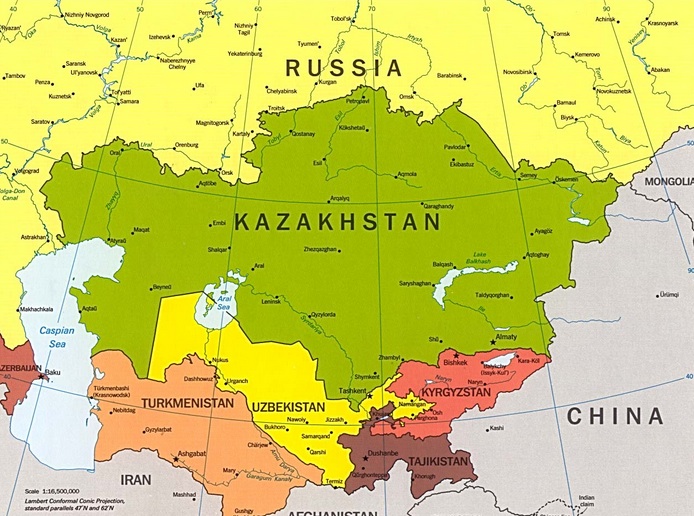Casey Michel writes: The United States is often – and often fairly – maligned for a distinct lack of strategy in its relations with Central Asia. Tacked on to Chinese or Afghanistan policy, bogged in securitization or stilted democratization efforts, Washington has seemed unable to formulate a distinct, coherent policy for the region for years. Unlike Beijing’s economic expansion or Moscow’s military ties, Washington’s Central Asian policy, if one appears, often comes across as an afterthought.
That’s not to say efforts haven’t been made to bring a policy to bear. Earlier this week, Deputy Secretary of State Antony Blinken spoke at the Brookings Institute, attempting to provide a sketch of Washington’s current regional plans. But in lieu of innovation or revamp, Washington appears content to continue along the muddled path it’s followed prior, with stale plans and retread ideas bundled once more.
For instance, Blinken cited the New Silk Road initiative, which has had little impact on the ground in its four years of existence. Pointing to attempts at “helping develop the region’s connectivity,” Blinken cited the CASA-1000 project, which will “help bring surplus hydro-electricity from Kyrgyzstan and Tajikistan to Afghanistan and Pakistan.” The CASA-1000 project, as it is, stands as one of America’s foremost efforts at regional integration – but makes little sense when Kyrgyzstan is a net electricity importer, as it experienced during 2014. Washington hasn’t attempted to explain just how the CASA-1000 will function with Tajikistan as the sole provider of surplus electricity. Blinken didn’t offer any explanation, either.
Blinken also cited Washington’s “three important objectives” in the region: strengthening partnerships to advance mutual security; forging closer economic ties; and advancing and advocating for improved governance and human rights.” The ordering – security foremost – speaks louder than the content. Blinken later reiterated the primacy of security, noting that “our policy in Central Asia [is] founded on two distinct ideas: US and Central Asia
